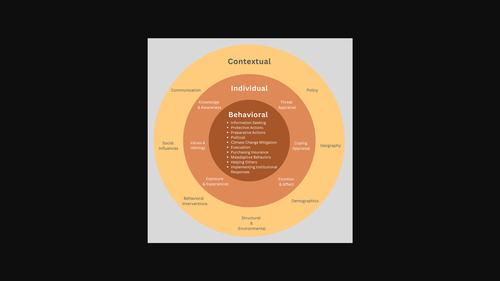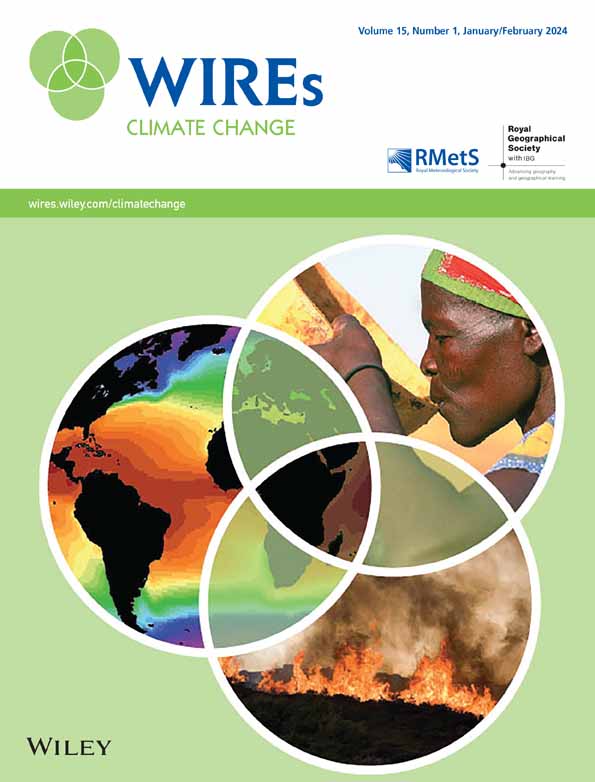在变暖的世界中改变对热风险的行为反应:如何改进沟通方法?
IF 10.3
1区 环境科学与生态学
Q1 ENVIRONMENTAL STUDIES
引用次数: 1
摘要
由于气候变化,与热浪相关的热风险在频率、严重程度和持续时间上都在增加。现在,全球人民认识和应对高温风险的方式对于减少一系列负面健康后果非常重要。越来越多的文献旨在评估与热风险有关的影响人们行为的因素。这项研究可以为更好的干预提供信息,例如改进沟通方法,试图促进对此类风险的适应性行为反应。这篇综述的重点是关于热风险反应的行为和态度研究如何为沟通方法提供信息。这些见解被组织成三个关键主题:(1)行为——人们可以采取什么类型的行动,适应性行为有什么证据?(2)前因——哪些个体因素和情境因素会影响人们的行为?(3)沟通——如何将现有的见解更好地整合到干预措施中?讨论了通信的各个方面,包括信息特征、信使和图像的作用,并举例说明了针对热风险适应性反应的有影响力的前因的信息和叙述。本文做出了三个重要贡献。首先,它组织了关于热风险的前因和行为反应的文献;其次,它提供了热风险行为范围的类型学;第三,它讨论了如何将先行词整合到沟通干预中。该综述最后提出了一项研究议程,强调了对热风险沟通进行大量测试和评估的必要性,并应用了文献中的见解。本文章由计算机程序翻译,如有差异,请以英文原文为准。

Changing behavioral responses to heat risk in a warming world: How can communication approaches be improved?
Heat risks, such as those associated with heatwaves, are increasing in frequency, severity, and duration due to climate change. The ways in which people around the globe perceive and respond to heat risks are now of great importance to reduce a range of negative health outcomes. A growing body of literature aims to assess the factors that influence people's behaviors in relation to heat risks. This research can inform better interventions, such as improved communications approaches, that attempt to facilitate adaptive behavioral responses to such risks. This review focuses on how insights from behavioral and attitudinal studies about heat risk responses can inform communication approaches. These insights are organized into three key themes: (1) Behaviors—What types of actions can be taken by people, and what evidence is there for adaptive behavior? (2) Antecedents—Which individual and contextual factors can influence people's behaviors? (3) Communications—How can existing insights be better integrated into interventions? Aspects of communication, including the role of message characteristics, messenger, and imagery, are discussed, with examples of messages and narratives that target influential antecedents of adaptive responses to heat risks. The paper makes three important contributions. First, it organizes literature on the antecedents and behavioral responses to heat risk; second, it provides a typology of the range of heat risk behaviors; and, third, it discusses how antecedents can be integrated into communication interventions. The review concludes with a proposed agenda for research, highlighting the need for substantial testing and evaluation of heat risk communication, applying insights from the literature.
求助全文
通过发布文献求助,成功后即可免费获取论文全文。
去求助
来源期刊

Wiley Interdisciplinary Reviews: Climate Change
METEOROLOGY & ATMOSPHERIC SCIENCES-
CiteScore
20.00
自引率
2.20%
发文量
58
审稿时长
>12 weeks
期刊介绍:
WIREs Climate Change serves as a distinctive platform for delving into current and emerging knowledge across various disciplines contributing to the understanding of climate change. This includes environmental history, humanities, physical and life sciences, social sciences, engineering, and economics. Developed in association with the Royal Meteorological Society and the Royal Geographical Society (with IBG) in the UK, this publication acts as an encyclopedic reference for climate change scholarship and research, offering a forum to explore diverse perspectives on how climate change is comprehended, analyzed, and contested globally.
 求助内容:
求助内容: 应助结果提醒方式:
应助结果提醒方式:


